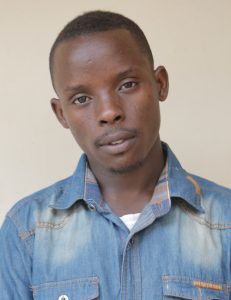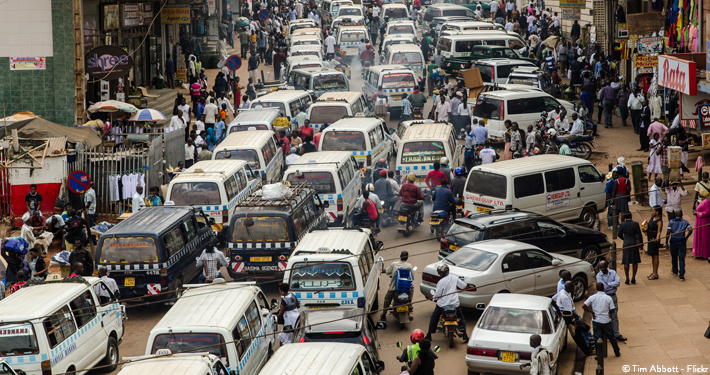Winner of Kampala transport hackathon seeks cleaner air
In Kampala, Uganda, many vehicles are second-hand and emit high levels of pollution. (© Tim Abbott – Flickr)
A recent report from the OECD Development Centre found that air pollution in Africa causes more premature deaths than malnutrition and unsafe water. Claiming the lives of over 700,000 people a year, Africa’s air pollution has increased by almost 40% in the past two decades and is on track to become worse than Asia.

Tell us about your winning project:
The Serari Security Kit (SSK) is a portable automotive air pollution testing device that displays the concentration levels of nitrogen oxide, sulfur dioxide and carbon monoxide. The device is based on international standards and transfers data to a database for storage and future use. ‘Serari’ means space in Hausa, a Nigerian language, and we see our project as a ‘space security kit’.
How does the hackathon environment contribute to coming up with fresh ideas?
As a developer, I have not experienced another event that can rival the hackathon. It promotes critical thinking and brings multidisciplinary teams together to provide feasible solutions to specific problems. In my view, this makes it a special thing since in a short amount of time excellent solutions are produced.
How does the SSK respond to specific public transport challenges that your city faces?
Many public transport vehicles in Africa are of low quality and degrade the environment. Our innovation steps in to solve the problem in an affordable and feasible manner. Compared to current laboratory tests and certification, our device is able to perform tests without a laboratory environment and is thus cheaper and more efficient.
The SSK offers a realistic solution, especially for developing countries like Uganda that are responsible for a considerable level of air pollution. The device’s ability to collect and store data can also help researchers and policymakers make informed decisions.
The Y4PT Global Transport Hackathon takes place in Montréal, alongside the UITP Global Public Transport Summit. Innovation is the central theme of the Summit, with cutting-edge exhibitions, presentations and world premieres.

Learn more about Y4PT’s #BreathableCities campaign, which measures people’s exposure to and inhalation of air pollutants through different modes of transport in order to estimate impact on human health.


